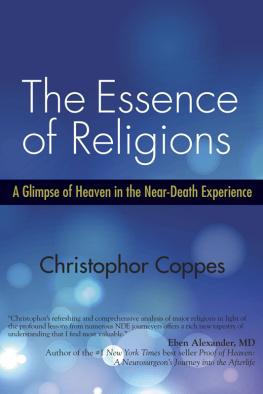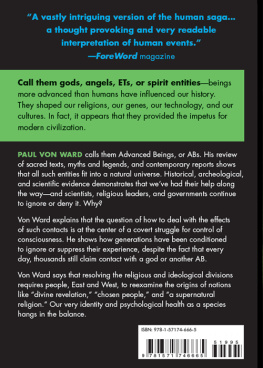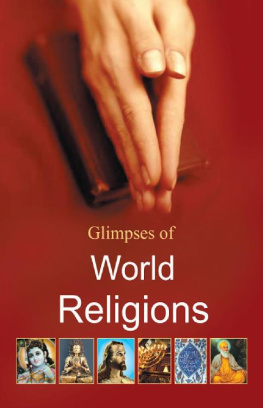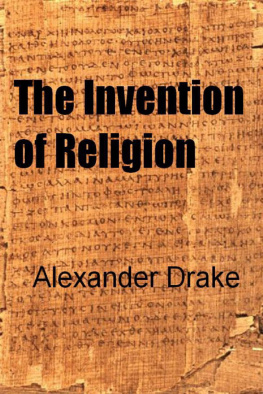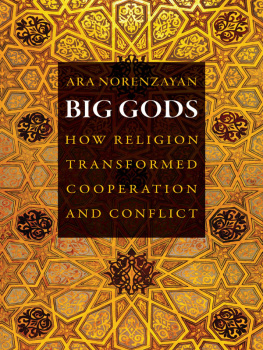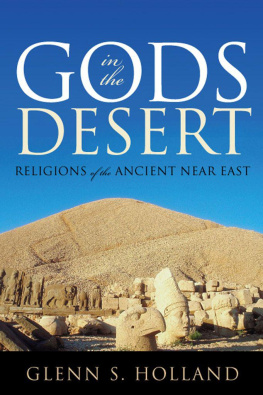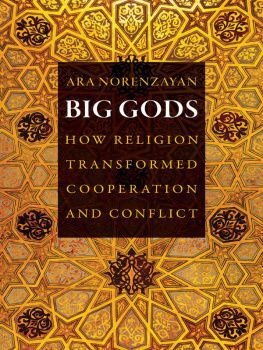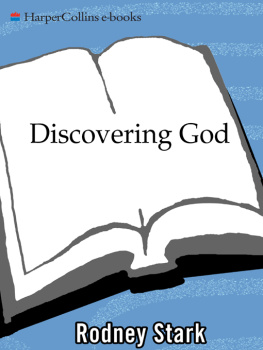Why Our Children
Will Be Atheists
The Last 100 Years of Religion, and
the Dawn of a World without Gods
Albert Williams
Copyright 2014 by Albert Williams.
All rights reserved. No part of this publication may be reproduced, distributed or transmitted in any form or by any means, including photocopying, recording, or other electronic or mechanical methods, without the prior written permission of the publisher, except in the case of brief quotations embodied in critical reviews and certain other noncommercial uses permitted by copyright law.
First Edition
ISBN 978-0-620-58801-0 (print)
ISBN 978-0-620-58802-7 (ebook)
Printed in the United States of America
"And he came to a stream in his journey, and he knew the world was about to change as he crossed it. In front of him was a vast land full of gods. He knew he had to go there, to face them all. But as he crossed the stream into the unknown, he realized the gods were all a delusion. He had no fear; but as he looked back, he realized that it was not the gods themselves who might kill him, but those who believed in the delusion of the gods. He also knew that he might never see the end of his journey, but that soon others would cross the stream, and the unknown would become the known and the unthinkable the norm.
"And as he felt the sun and wind on his skin and the cosmos all around him, he did not regret."
Table of Contents
Foreword
T he knife cuts deep into the body of the young girl, and she squirms as she is pinned down by two strong adults, her screams muffled by the cloth pushed far back into her mouth. Her attackers are untouched by her pain and suffering; a trance comes over them as they proceed to viciously and savagely harvest her body parts. Body parts intended for the gods.
The priest looks down at his audience with contentment; the atmosphere is electric and laden with power. Tonight he is the tool of God, bringing Gods word to the people. God will be satisfied with his work and message: a message of obedience to God, to find his mercy and salvation. Pity those believing in other Gods, for Gods curse awaits them in the afterlife.
By now the square has filled with people, people with no hope, people for whom a season of drought has brought misery and poverty and hunger. A day of prayer has been called; a day to call on God to open the heavens; a day to ask for forgiveness for whatever it was they did to displease Him, to beg Him to be merciful. A prayer for the rain to begin, to alleviate the drought-stricken country.
The scientist pushes back his chair; the dating report for the fossil in front of him is just in, putting the age of these early human remains at several million years. They were found in the Great Rift Valley of eastern Africa, a place many have come to regard as the birthplace of humankind. The television across the room broadcasts the first images of the latest space shuttle returning to Earth, from a mission that gathered space dust that will be soon be dated at more than 4.6 billion years old.
In this book, the author reveals the origins of our gods, in particular where and how they became our gods. He discusses the profound impact of these gods on our lives, and the measures taken by their followers to keep those gods alive. The story of the Earth and the origins of life then take the forefront, after which the last 100 years of religion is predicted, and the reasons why this will be the case. The new era is anticipated by many: a post-God era in which the human race will emerge from its religious past with a new understanding of the universe and humanitya new model with which to face the next few thousand years on Earth and elsewhere. It is a book that predicts the end of religion as we know it. The transformation has started.
Chapter 1
The Birth of Religion
The End of Religion in the Next 100 Years
Humanity is entering the final century of religion as we know it: the conclusion of an era that has lasted literally millions of years, spanning our origins from primitive hominid to the discovery of evolution and the true origins of life.
The history of humankind is to split in two, a bygone era of ignorance and religion and a new era of knowledge and reason.
The next century represents the transitional period between these epochs of thought. By the end of this period, Judaism, Christianity, Islam, Hinduism, and so many other faiths will fade and, ultimately, disappear. The last living generation of believers will be replaced by new generations for whom religion will be a faint memory.
Will the gods still exist at all by 2120? Or will one of our current Gods finally manifest itself once and for all to obliterate all the other religions and gods, merging the supernatural and human worlds at last.
The world is about to change and three outcomes are possible:
Religion will cease to exist, having been replaced by a new model of human behavior and understanding;
- Religion as we know it will change to adapt to a modern world; or
- Religious ideology will replace our current knowledge, transforming the world into a backward theocracy.
Why Our Children Will be Atheists fearlessly examines our current major religions, their origins, and the path of their final demise. This book also lays bare the origins of the current gods, from Allah to Jehovah to Shiva and all the rest, whether monotheistic or pantheonic. It begins by examining the evidence weve uncovered regarding primitive religionsevidence dominated by myth, ritual, taboo, and superstition and shows how so much of each is still present in our current religions.
As the global human population increased from a few thousand to tens and hundreds of thousands, and then into the millions, humanity entered an inevitable transformation from hunter-gatherers to agriculturistsinevitable because it was the only way to support large numbers of people. This transformation also triggered the evolution of primitive belief systems into the more complex ones we know today. As nomadic groups first concentrated around abundant resources and then learned to control them, our first major gods were born: the early deities of Ur and Sumer; later, the more sophisticated gods, from Hindu to Egyptian to Judaism, Christianity and other.
The book then asks if todays gods were really always there, presiding over the world since its creation, each the ultimate Creator and Ruler of our cosmosor if, in fact, they ever really existed?
The author traces the religions of our current society, from their origins 10,000+ years ago as basic ritual and superstition, on through the development of full priesthoods and religious orders. The human races powerful dependence and reliance upon religion is then considered in detail. He describes the ordeal of a boy, trapped by a deadly sickness, using his god and religion to find answers. He also explores the psychological impact of religion on human thought and behavior throughout history.
Next, Why Our Children Will be Atheists tackles the question of whether religion imbues a person with better morals and essential goodness. In particular, it critically discusses research claiming that religious children are happier and more content than their non-religious counterparts. Also examined are the powerful mechanisms that religion deploys to ensure its survival, and the use of the state to advance religion.
The final section part of the book briefly outlines our current knowledge of the universe, the origins of life, and its evolution, all of which are gradually replacing our notions of Special Creation. The new, emergent phase of human spirituality is then described, representing a model that will eventually render current faiths irrelevant, heralding the beginning of a religion-free era.
The Different Modern Religions
Next page

